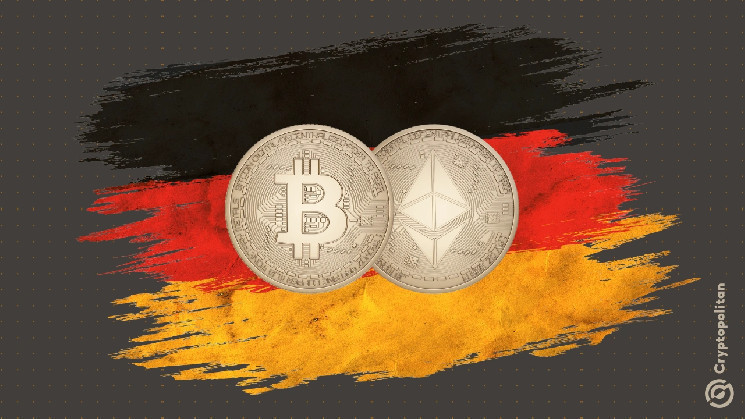DekaBank, a prominent German bank, has achieved a significant milestone by securing a crypto custody license from BaFin, the German Federal Financial Supervisory Authority, and the European Central Bank (ECB). This achievement positions DekaBank as one of the few traditional German banks, alongside Commerzbank, to operate within the regulated crypto custody space. The license, granted under the German Banking Act (KWG), signifies a notable step towards mainstream adoption of cryptocurrencies within the traditional financial system. While BaFin has issued similar licenses to other entities, most recipients have been crypto-native companies. DekaBank’s acquisition of this license under traditional banking regulations sets it apart, lending a degree of legitimacy and credibility that enhances its position in the evolving landscape of digital assets.
DekaBank’s recent attainment of the crypto custody license is not its first foray into the regulated digital asset market. Earlier in the year, the bank secured a license to operate as a crypto securities registrar. This authorization empowers DekaBank to issue blockchain-based digital securities within Germany without relying on a central securities depository (CSD), streamlining the process and eliminating intermediaries. This move aligns with the core principles of decentralization inherent in the cryptocurrency ethos. Furthermore, DekaBank’s involvement as a founding member of SWIAT, a blockchain platform designed for digital securities issuance, underscores its commitment to innovation in the financial sector. SWIAT boasts the participation of major financial institutions such as Standard Chartered and LBBW, and its successful facilitation of a €300 million digital bond issuance by Siemens demonstrates its practical application and potential for transforming traditional financial instruments.
The regulatory environment in Germany, while known for its meticulousness, has played a crucial role in shaping the development of the crypto market. The Supervision of Crypto Markets Act (KMAG), recently passed after some delays, replaces Germany’s previous crypto regulations with the framework established by the Markets in Crypto-Assets (MiCA) regulation. This harmonization aligns German crypto regulations with the broader European framework, providing clarity and fostering legal certainty for institutions operating in the crypto space. While the legislative process encountered some delays due to political complexities within the German government, the eventual passage of KMAG cleared the path for institutions like DekaBank to expand their crypto operations throughout the European Union. Before the enactment of KMAG, the regulatory uncertainty created challenges for banks seeking to engage with digital assets, limiting their ability to fully participate in this emerging market.
Germany’s approach to crypto regulation, characterized by a cautious yet progressive stance, has provided a foundation for a stable and transparent crypto market. As early as 2013, Germany recognized cryptocurrencies as financial instruments, demonstrating a forward-thinking approach compared to many other nations. The subsequent mandate in 2020 requiring BaFin licensing for all crypto exchanges further solidified Germany’s commitment to regulatory oversight in the crypto space. This proactive regulatory stance contrasts with the ambiguity and lack of clear guidelines prevalent in many other jurisdictions, positioning Germany as a leading force in shaping the European crypto landscape. While some may perceive this approach as overly cautious, it has established a framework that fosters trust and stability in the market.
Germany’s crypto-friendly tax policies further contribute to its attractiveness for crypto investors. Capital gains on cryptocurrencies held for longer than one year are exempt from taxation, incentivizing long-term investment strategies. Profits from crypto sales within a one-year timeframe are subject to regular income tax rates, which can reach up to 45% plus a 5.5% solidarity surcharge. However, profits below €600 are exempt from taxation, providing some relief for smaller investors. This nuanced tax regime balances the need for revenue generation with the encouragement of long-term engagement in the crypto market, fostering a more stable and sustainable ecosystem.
The German crypto market exhibits robust activity, reflecting the growing adoption of digital assets among investors. Surveys reveal that a significant portion of private crypto investors allocate a substantial proportion of their portfolios to digital assets. Security remains a paramount concern for investors, influencing their choice of investment platforms. The popularity of established cryptocurrencies like Bitcoin and Ethereum remains strong, while newer projects like Solana are gaining traction, indicating a dynamic and evolving market landscape. The German market has witnessed its share of notable events, including the government’s sale of a substantial amount of Bitcoin seized in a piracy case, illustrating the intersection of cryptocurrencies with legal and regulatory processes.


